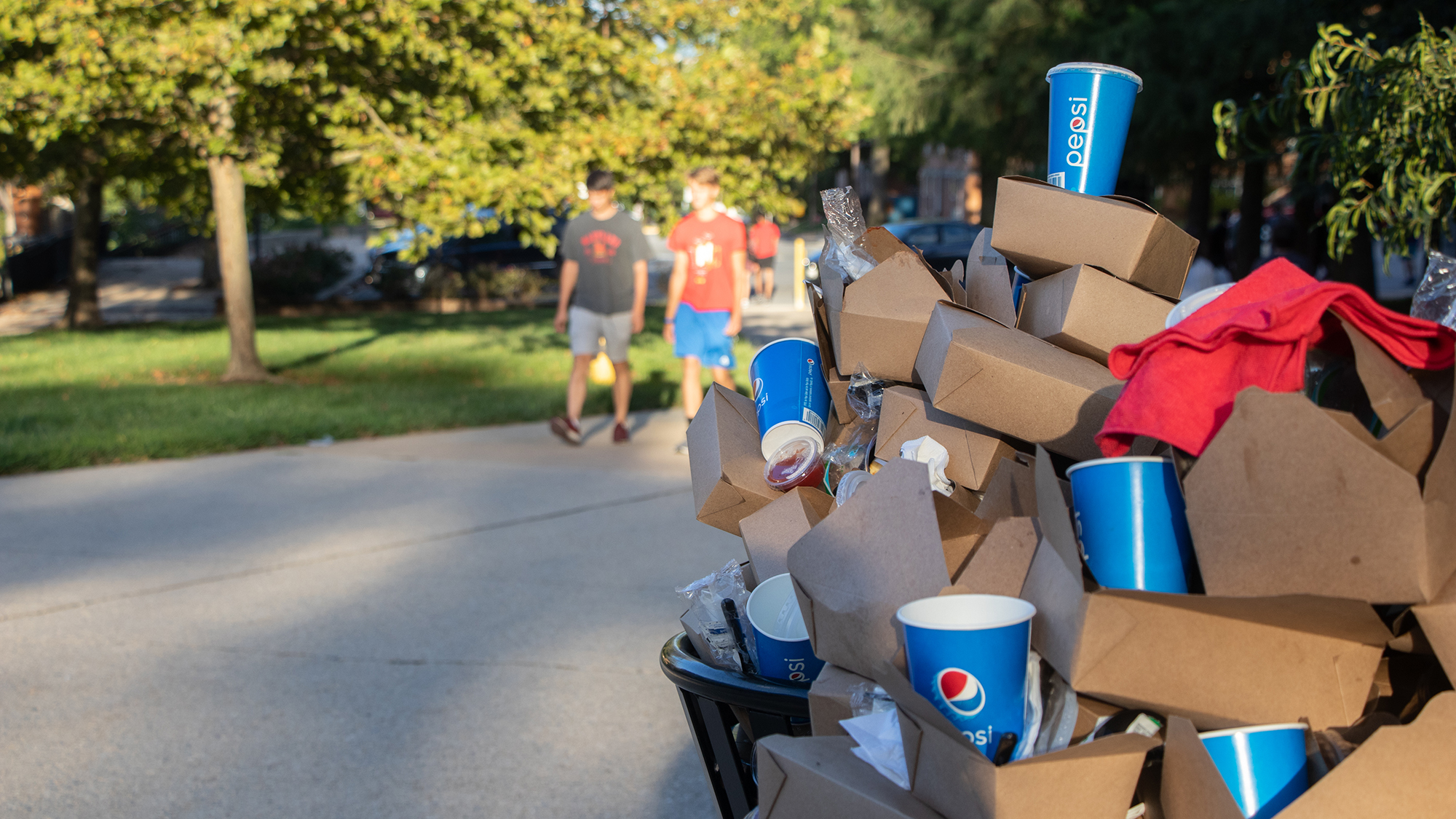Views expressed in opinion columns are the author’s own.
I don’t miss the strange experience of living on campus last year in a pandemic-blighted ghost-town. But I genuinely do miss the takeout option from the dining halls.
Not that I don’t enjoy the social aspect of the dining halls and the higher quality of food this year, but I, along with other students, wish we still had the takeout option. Not only was it incredibly convenient, but it also definitely made me feel safer to be able to eat outside or in my dorm instead of in the packed dining halls.
A spokesperson recently told The Diamondback that Dining Services’ “preferred style of service is called Anytime Dining,” but frankly, I don’t care what Dining Services’ preferences are. The University of Maryland should be concerned with what students’ preferences are and what’s in our best interest. By choosing to house students, their priority should be their obligated responsibility for our well-being, not their own convenience. It’s time the university brings back takeout dining.
Students at this university are fairly well-protected from COVID-19 due to the high percentage of vaccinated individuals on campus. However, this doesn’t mean that everyone is equally well protected. Some students have religious or medical exemptions to be unvaccinated and are therefore at higher risk of contracting the disease. For these individuals, the dining halls are extremely risky. Students sit face to face, maskless, crowded into messy rows of tables for significant periods of time.
Many community members understandably are worried about pandemic safety for themselves, unvaccinated or immunocompromised peers, elderly professors and family members they might visit.
For students with dining plans, the only place we can eat is in the dining halls. The only accommodation I’ve seen Dining Services provide is a small area set up to the side of the main dining area. The way it’s set up, raised and in a totally separate room, discourages students from using it. It can make people feel antisocial or slightly pariah-ish to be literally isolated from the social buzz emanating from the rest of the hall.
Also, it’s still indoors, which doesn’t really assuage fears. But the dining halls aren’t just hypothetically a perfect place for a COVID-19 outbreak to start spreading — university policies actually encourage COVID-19 spread in them.
Here’s a hypothetical that I’m sure probably happens to students all the time. One of your vaccinated roommates has just tested positive for a breakthrough case of COVID-19. He’s dragged away to quarantine housing, but you are denied entry into isolation housing because you’re also vaccinated. Since you care about the health and safety of your peers — unlike this university’s administration — you’d like to self-isolate as much as possible while you wait for your PCR-based test to come back.
But you can’t exactly self-isolate at mealtime. If you don’t go to the dining hall, how are you going to eat? You can’t cook in your dorm, and you certainly don’t have the budget for a few days of delivered meals. Repeated sick meals may not work for you since you don’t have a doctor’s note. So, you’re just consigned to sit next to plenty of people in the dining hall for 30 minutes, unwillingly spreading potential COVID-19 germs.
Ignoring the other problematic policy in this example, the forced closeness of the dining halls is a horribly unsafe and irresponsible policy from the university. It basically guarantees that disease spreads — if not COVID-19, then the flu or common cold. Students want to stay on campus. Not only is this best for our learning, social development and formative college years, but it’s also what we paid exorbitant tuition fees for. This policy will make it much harder for students to do their part in mitigating the spread of disease through our community.
But at the end of the day, it’s also a matter of convenience and better alignment with Dining Services’ own stated goals. Allowing students to take food out and eat with friends, grab lunch in between classes or a myriad of other creative options will mean Dining Services is truly committed to Anytime Dining.
Giving us back the takeout option will give students greater flexibility and allow us to protect community members who the vaccines don’t fully cover. This small cost for Dining Services would be a big win for students.
Jessica Ye is a sophomore government and politics and economics major. She can be reached at jye1@terpmail.umd.edu.



